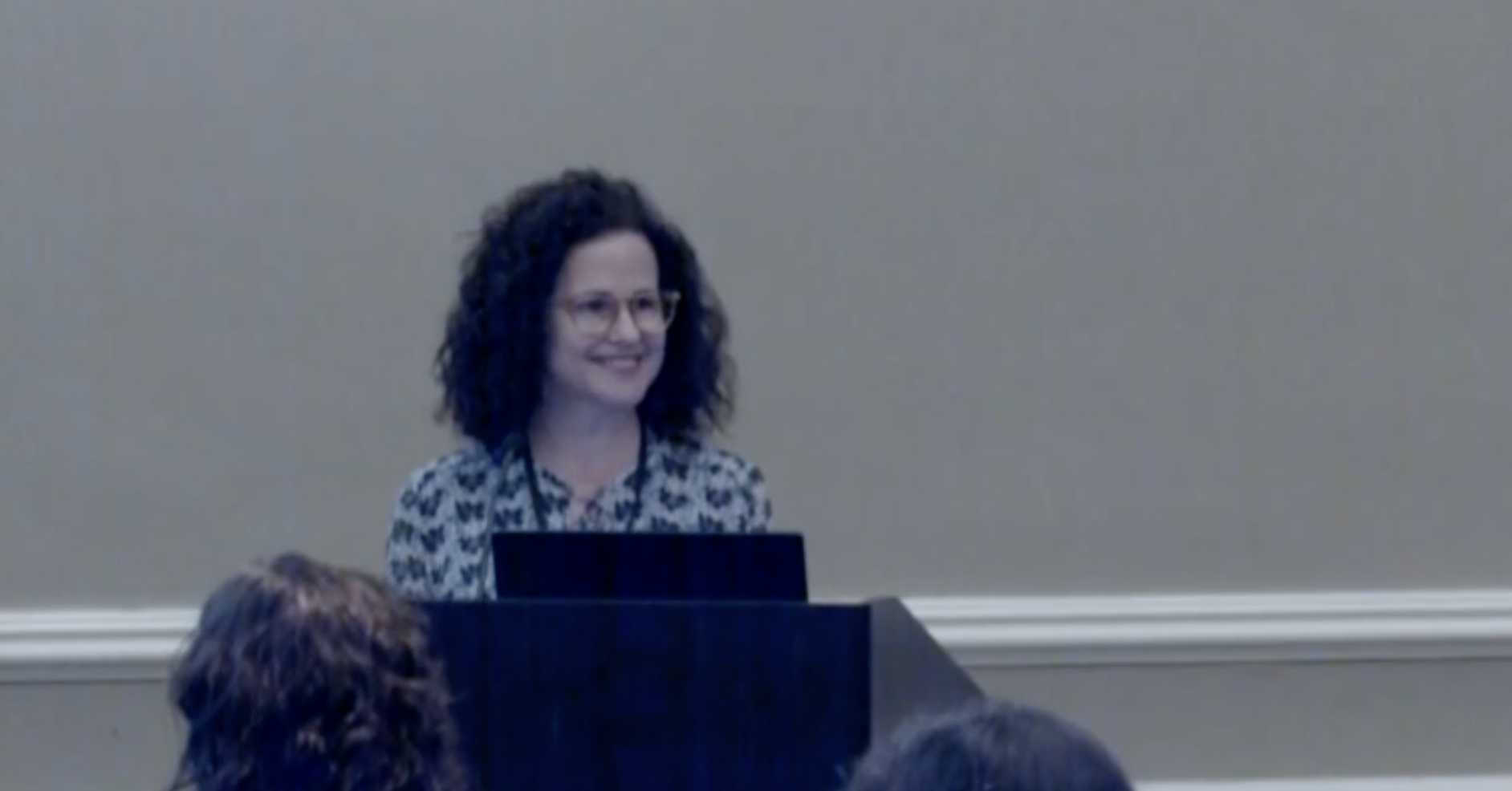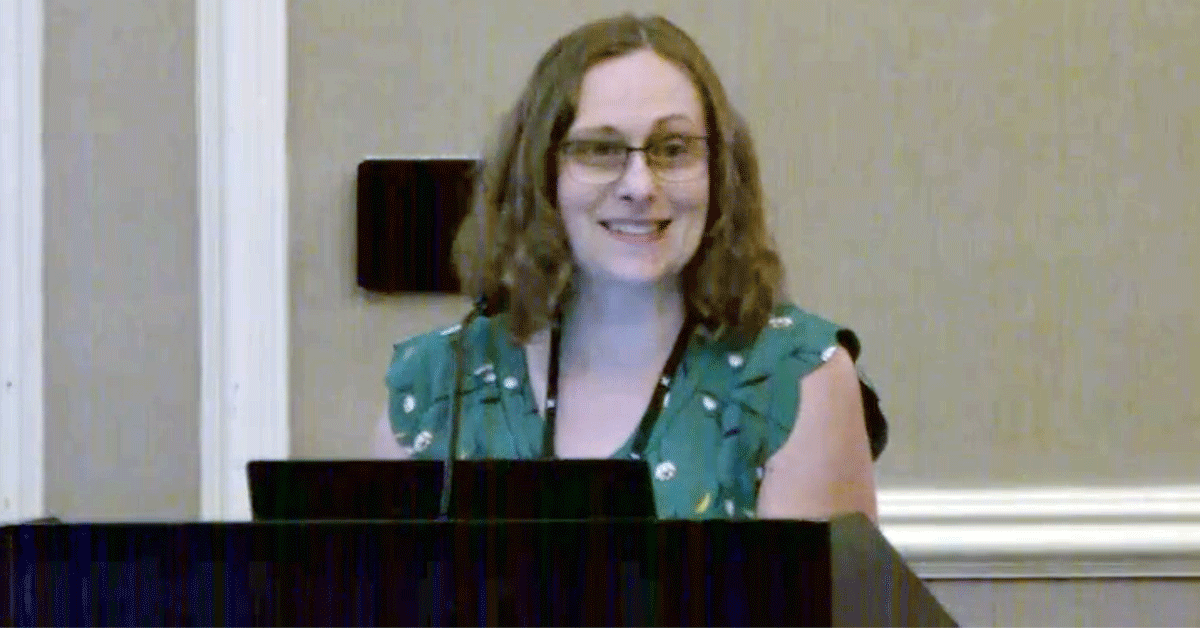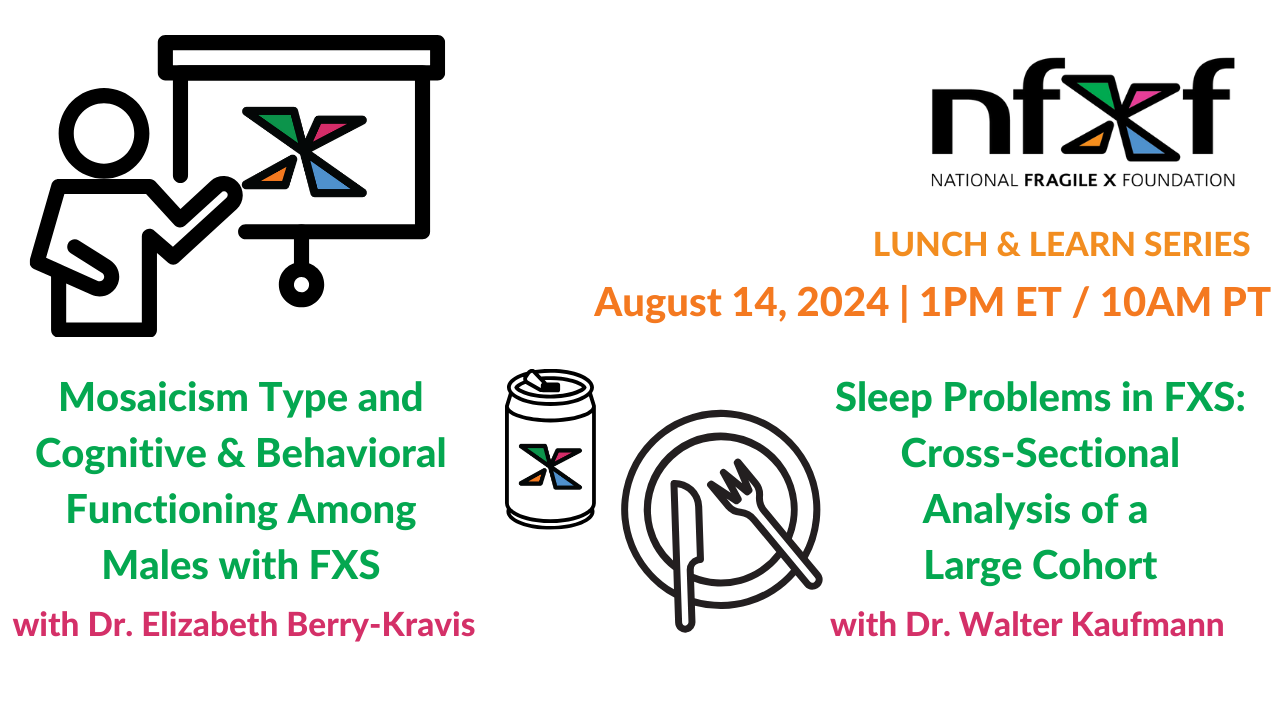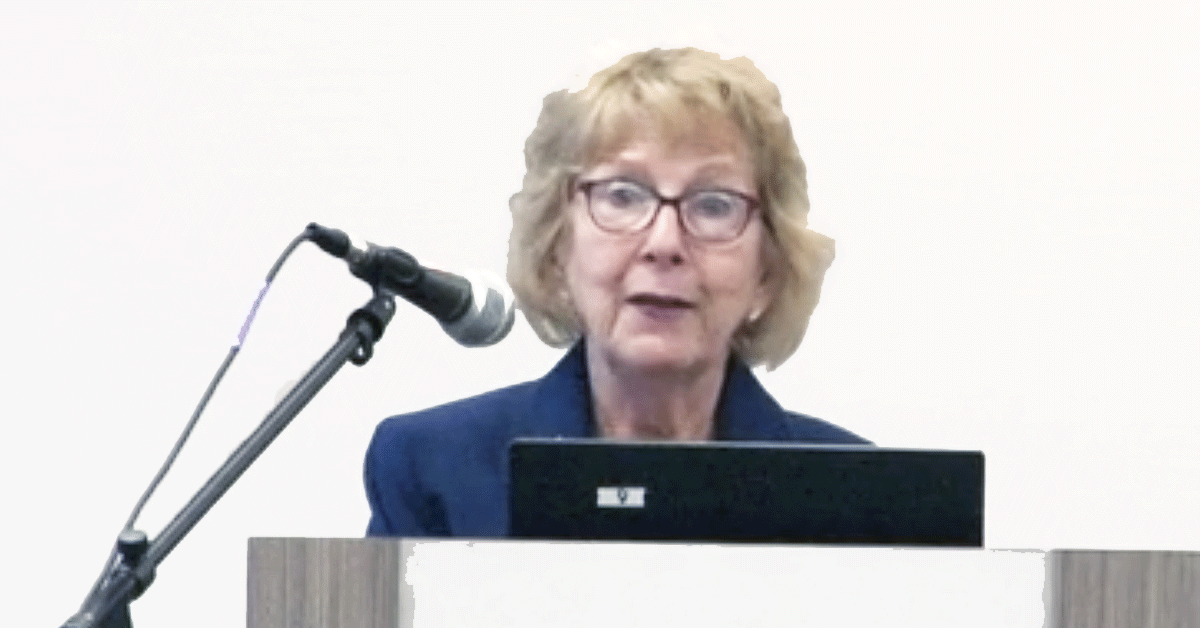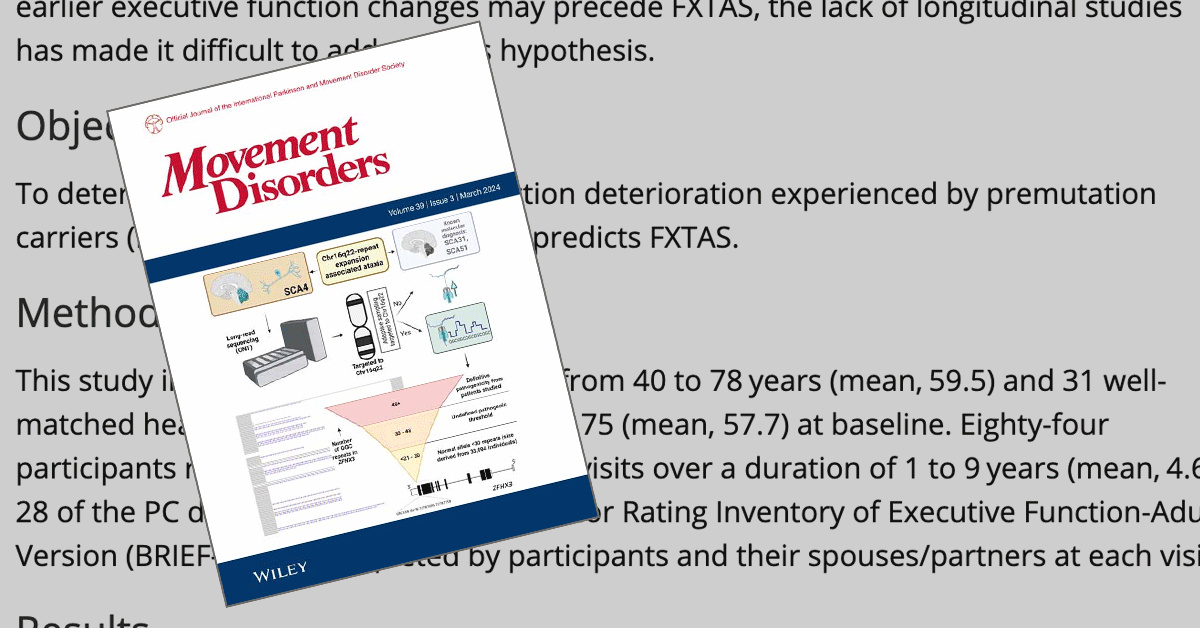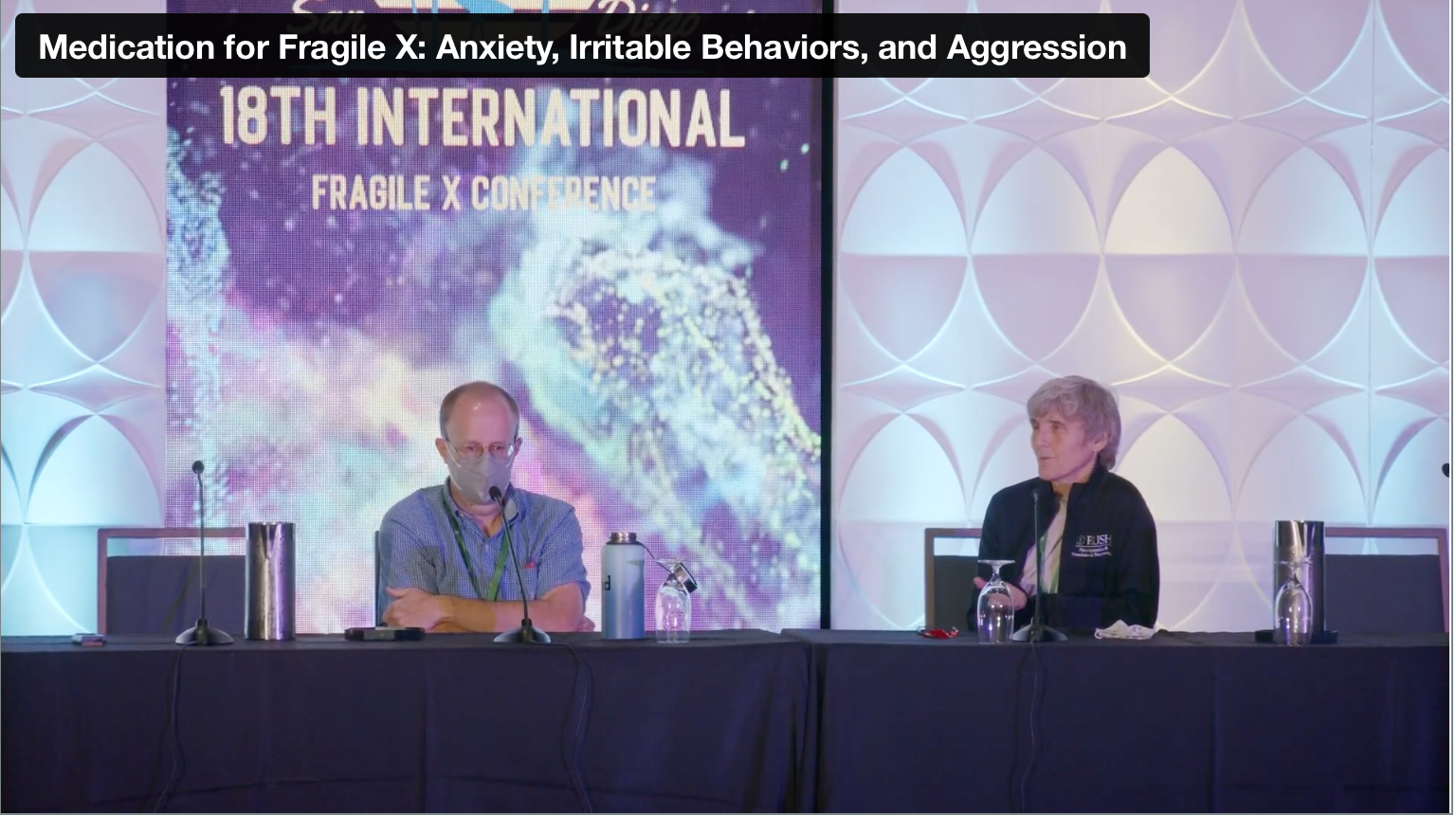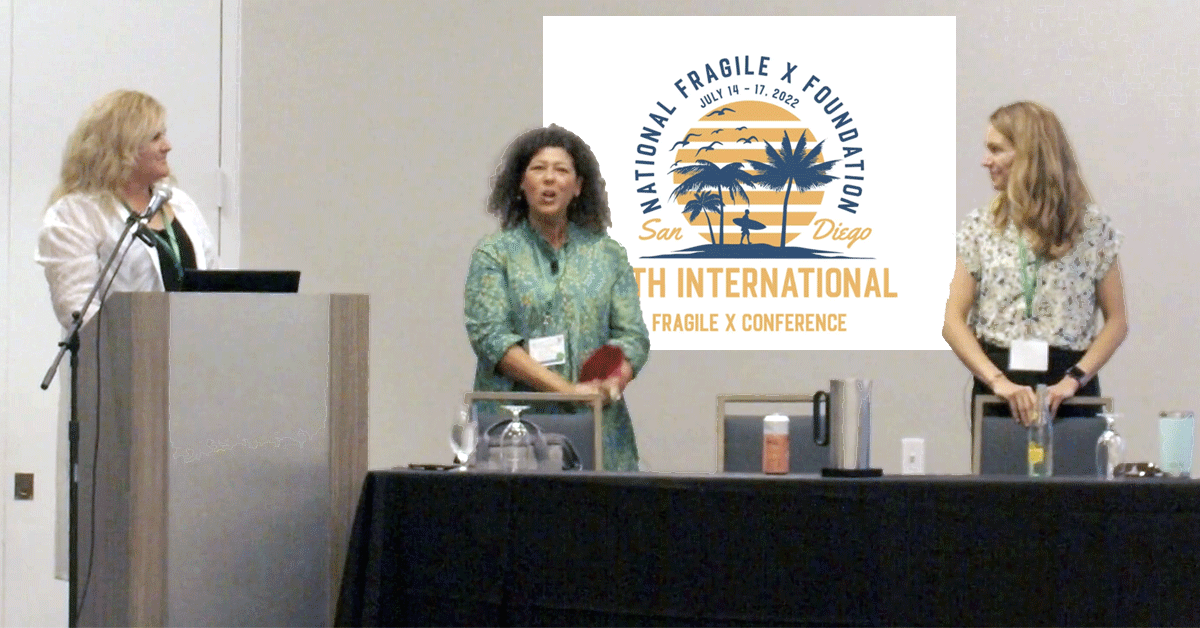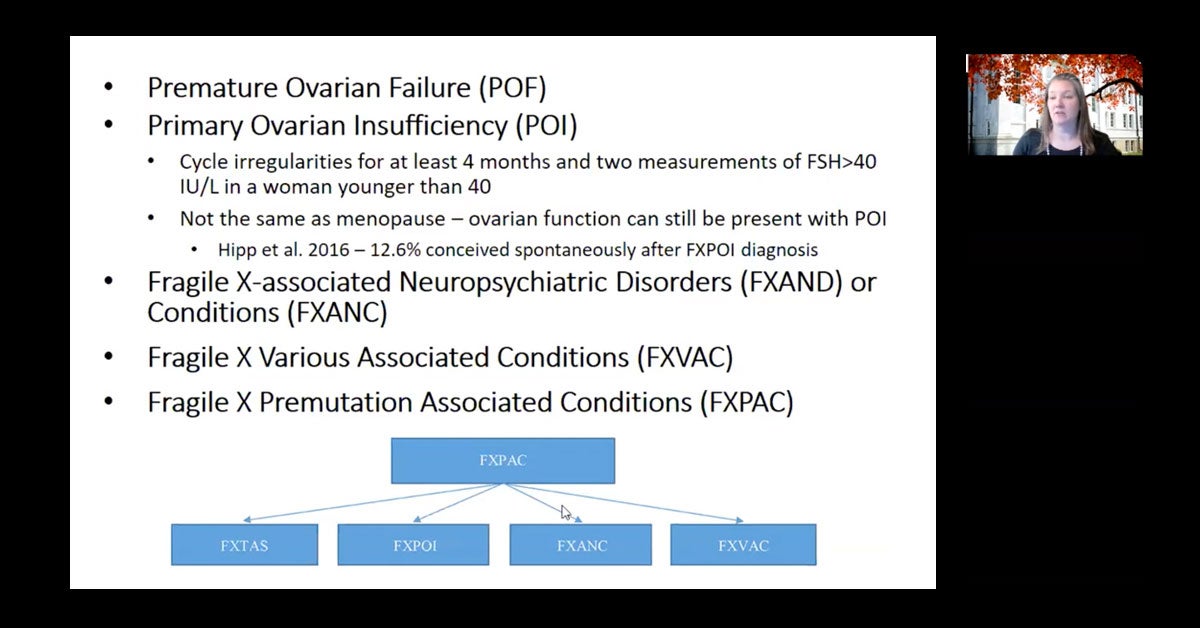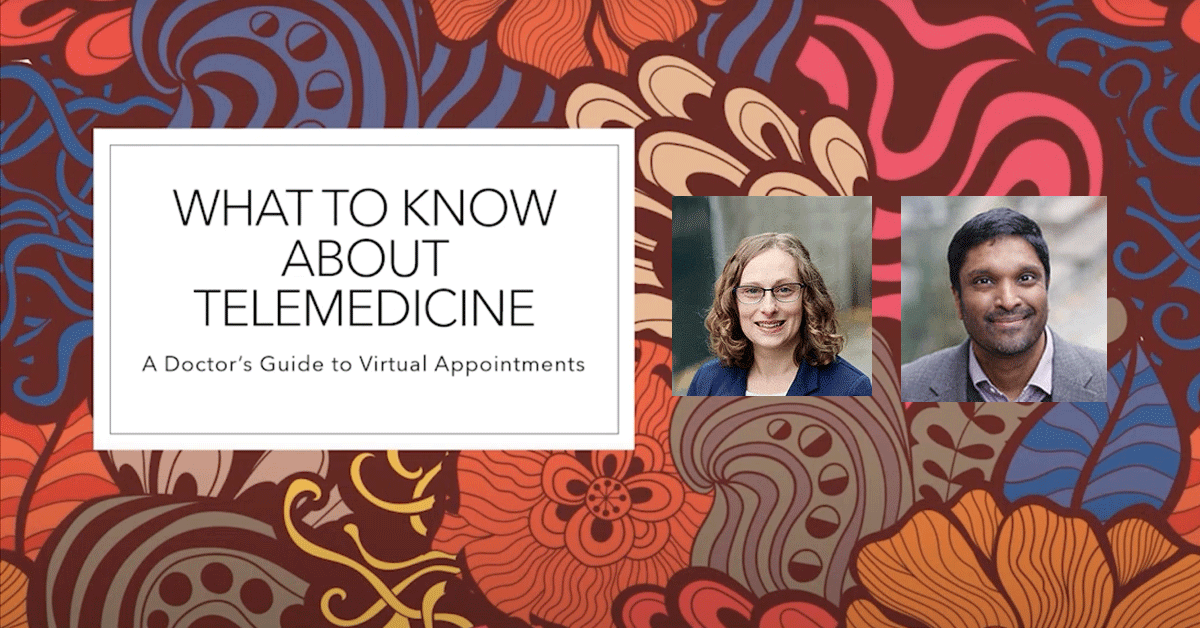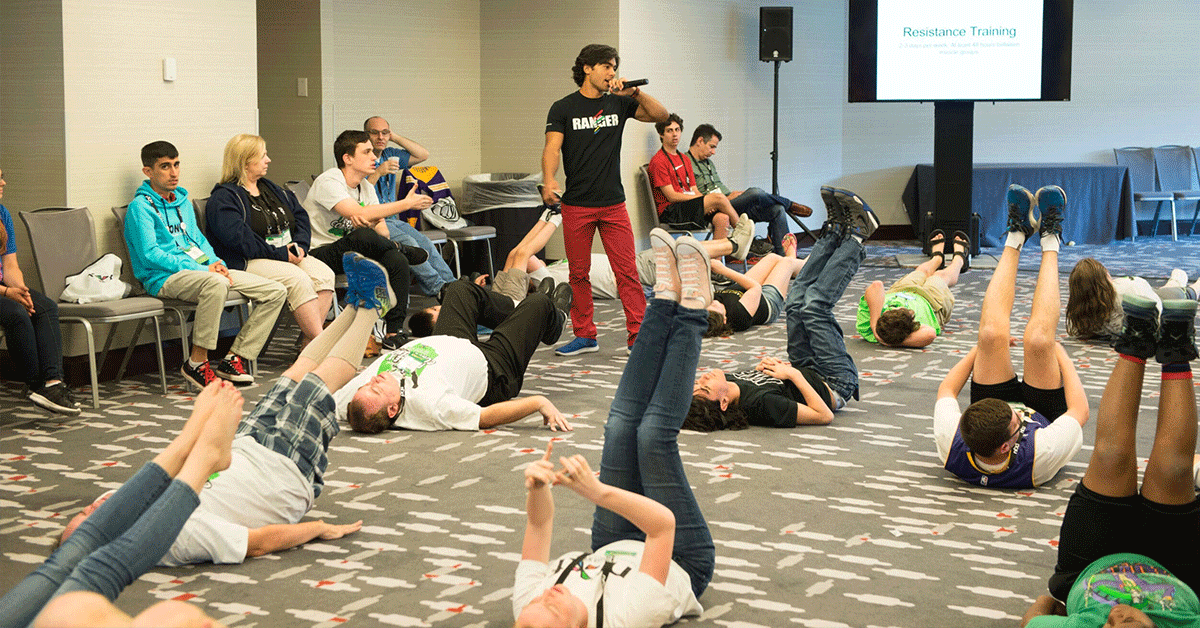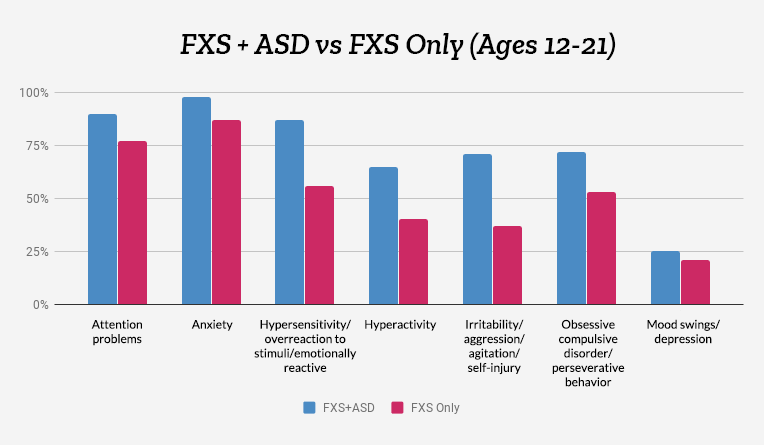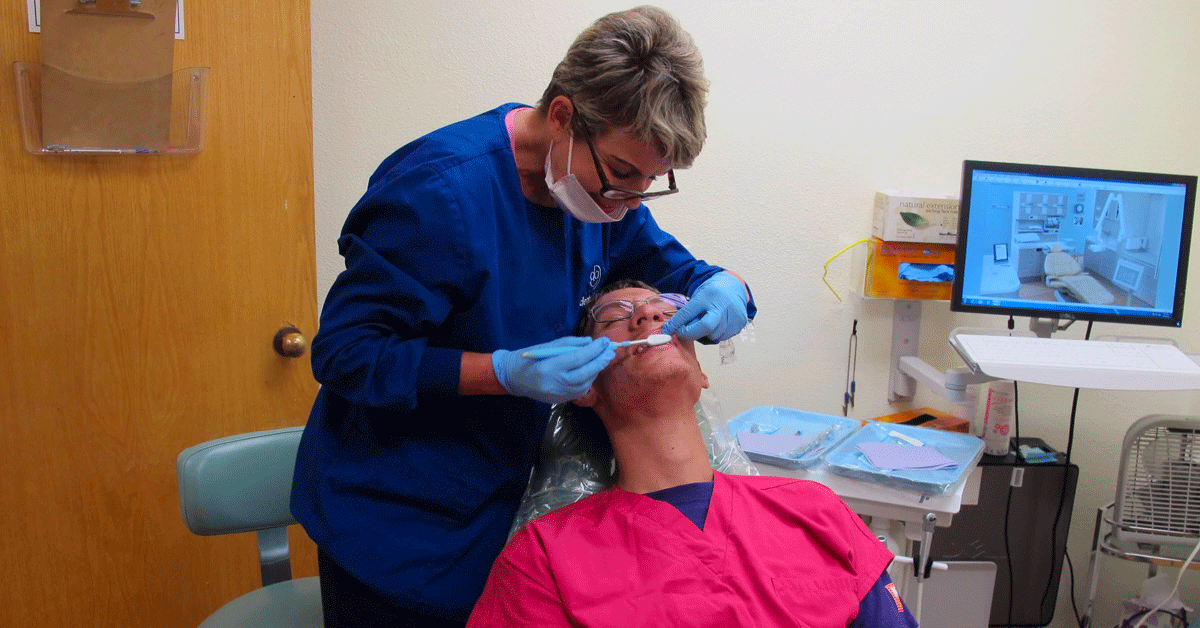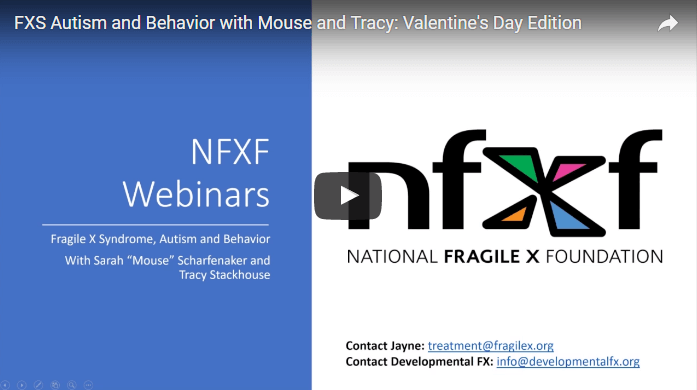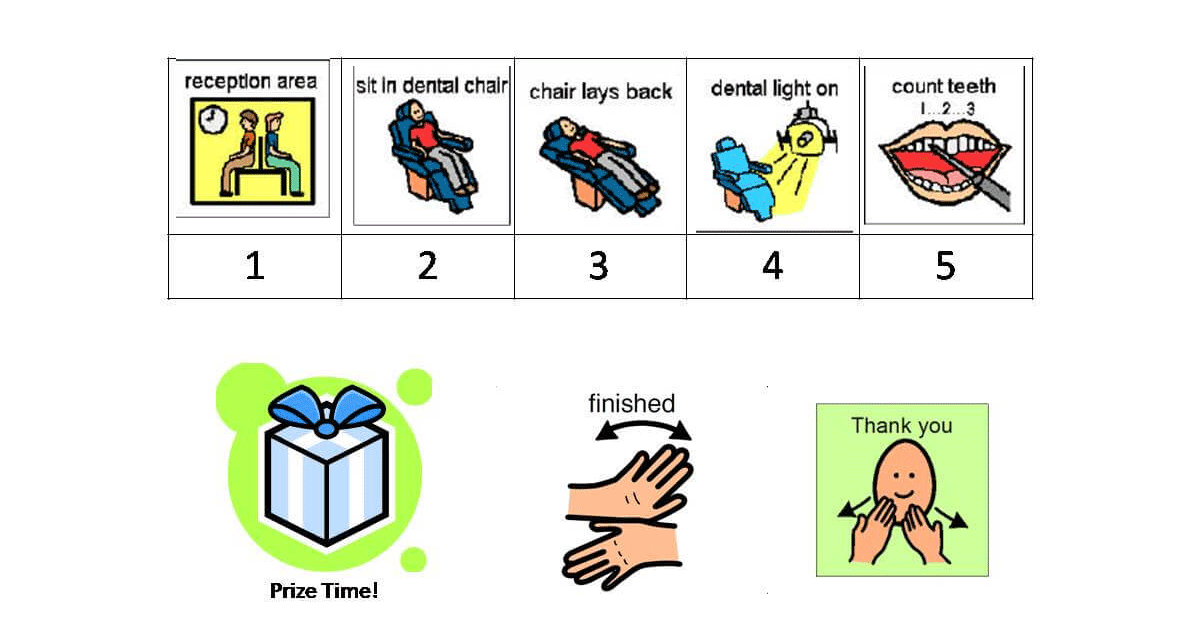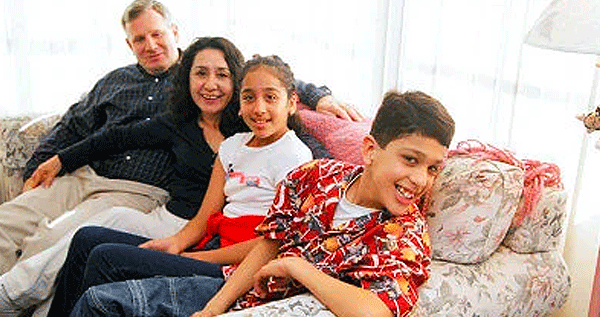Dr. Deby Barbouth explores evidence-based lifestyle choices, mind-body techniques, and more to enhance well-being for women with the Fragile X premutation.
Rebecca Shaffer leads two presentations about how to stay calm and manage intense emotions. The first is for self-advocates, and the second is for caregivers of individuals with Fragile X syndrome.
We have gathered information to help you make the most of your online telehealth visit for your child (of any age) with Fragile X syndrome. While we focus on visits with a Fragile X clinic, the information also applies to telehealth appointments with a primary care doctor or other health professionals.
Dr. Elizabeth Berry-Kravis and Dr. Walter Kaufmann presented two of the “most-cited” publications from the American Journal of Medical Genetics Part A and answered questions during a moderated Q&A.
This is a family-friendly, introductory presentation focusing on sensory, communication, and behavior needs for school-age children with FXS.
Hosted by Jayne Dixon Weber, Tracy Stackhouse and Sarah K. Scharfenaker (co-founder emeritus) of Developmental FX provide insight and valuable advice on autism and its relation to behavior in Fragile X syndrome.
Barbara Haas-Givler, from the Geisinger Fragile X clinic in Pennsylvania, gave a talk at the 18th NFXF International Fragile X Conference about executive functioning — what it is, how to identify it, and strategies for improving it.
The multidisciplinary panel discussed the unique experiences and support needs of females living with Fragile X syndrome. While females may sometimes exhibit fewer overt support needs, they can be as significantly affected as males. This complexity highlights the necessity for individualized approaches to support and intervention.
Because there are genes known to be associated with autism — Fragile X being the most common — it is important to test for the presence of an underlying genetic disorder.
It is critical to integrate knowledge of hyperarousal into any intervention strategy, especially for those treatments that come from a tradition of autism intervention.
Brenda Finucane, MS, LGC, associate director and professor at Geisinger ADMI, explains mosaicism, plus answers some burning genetics questions from the Fragile X community.
Dr. Hessl discusses the details of a longitudinal study that examined executive functioning changes in men living with the FMR1 premutation. He describes how the study was conducted, what the results showed, why they are important, what they mean for the FX community, and the next steps to move us forward.
Research Summary: This research was very revealing. Currently, we do not have accurate methods to predict who will develop FXTAS and who will not, or when the disease will start.
Our panelists share strategies to help manage the risk of developing and treating Fragile X-associated conditions and recommendations for informing and advocating for your healthcare and mental health needs with your providers. This conversation focuses on the individual living with the Fragile X premutation while also recognizing that they may be a multi-generational caregiver within their family.
The webinar was a facilitated one-hour Q&A session covering a wide-range of topics. The panelists shared recommendations and information during the discussion, each from their own professional perspectives.
We heard how challenging it is to find quality dentists for patients living with FXS. As a result, we searched and found some helpful resources.
Speaker Barbara Haas-Givler provides resources and strategies for implementing social skills support in the classroom, home, and community.
Our panel of experts, Rebecca Shaffer, Lauren Schmitt, Tracy Murnan Stackhouse, Elizabeth M. Berry-Kravis, and Randi J. Hagerman, discuss behavior.
This session will cover currently available supportive medications for treating anxiety, irritability, and agitated and aggressive behaviors that can be problematic in Fragile X syndrome. Medication classes and specific medications within each class will be described.
Experts in the field discuss support and solutions for females with Fragile X in this panel discussion and Q&A.
Tracy Murnan Stackhouse, MA, OTR, addresses the topic of anxiety, hyperarousal, sensory reactivity, and behavioral difficulties that arise from overwhelm.
This presentation focuses on signs of emotion dysregulation in Fragile X syndrome and ways to respond including practical strategies and an Emotion Regulation Toolkit to download.
This interactive, family-friendly presentation focuses on considerations for school-age children with Fragile X syndrome.
More research needs to be done, but knowing more about how FXS differs in people with and without methylation mosaicism may eventually help guide the expectations and treatment of individuals with FXS.
Dr. Marcia Braden presents a webinar about females and Fragile X syndrome to help you better understand the features associated with the syndrome.
Emily Allen discusses some of the health concerns of women who are FMR1 premutation carriers.
Our distinguished presenters discuss currently available supportive medications for treating anxiety and irritable, agitated, and aggressive behaviors in Fragile X syndrome.
Practical tips from doctors working directly with children and teens with Fragile X syndrome, with an emphasis on being prepared for FXS -and behavioral-specific questions.
Learn how a sensory diet acts as an occupational therapy intervention strategy devised to attain and maintain appropriate arousal states throughout each day.
Our partners at the CDC released a new paper intending to help clinicians identify preventive care services that their patients with FXS may need.
We take a look at behavioral issues in individuals with FXS plus ASD and compare them to those with FXS alone.
Understanding why individuals with Fragile X syndrome are anxious with strategies on how to manage and prevent triggers.
A sensory diet aims to achieve an appropriate level of arousal and reduce sensory defensiveness to help the individual in daily life.
As part of the NFXF’s ever-increasing focus on services for adults, we are pleased to bring you this 30-minute slide and audio presentation by Dr. Marcia Braden.
Numerous small and parent-reported studies have shown that a considerable percentage of individuals with Fragile X syndrome also carry a diagnosis of autism spectrum disorder.
Read one mother’s story and her words encouraging you to keep at it with your child — brushing their teeth, taking them to the dentist, finding a dentist who is willing to work with you, and using general anesthesia if you need to.
We discuss verbal perseveration, a very typical and pervasive aspect of language in Fragile X syndrome. Does verbal perseveration interfere with daily living and activities? On the list of questions parents ask the most often, verbal perseveration is at the top.
Tracy Stackhouse and Sarah Scharfenaker (co-founder emeritus) of Developmental FX , join us to answer questions about Fragile X and behavior.
Though males experience greater frequency and severity of symptoms, females with FXS present a variety of challenges as well. This article is dedicated to addressing those challenges.
We use a variety of visually-based supports with individuals with FXS for a number of reasons, including that they are visual learners, and we need to take advantage of this strength.
Pay attention to your reaction; if you provide social, emotional, or negative attention, you are most likely reinforcing a behavior that will continue.
When discussing FXS and behavior, it is important to note that — like every person — the focus should not only be on the challenging behaviors you may see. It is essential that parents look at the whole person. Some behaviors may result from the condition, many of which are positive, and they are the behaviors you will see most often.
Understanding the distinctions is helpful when deciding on the most appropriate medical, therapeutic, counseling, and education interventions, and will increase the potential for both short- and long-term benefits.
Why would hearing “Happy Birthday” provoke such a strong reaction? The answer is really quite simple. Children with FXS tend to find it very uncomfortable being the center of attention.
Clinicians from the Fragile X Clinical and Research Consortium, working with Dr. Sharon Kidd, former FXCRC national coordinator, determined the most common medical problems found in individuals with FXS.
Play allows children to use their creativity while developing their imagination, dexterity, and physical, cognitive, and emotional strength.
An assortment of sensory-, routine-, and language-based daily life strategies from the experts at Developmental FX, drawn from evidence-based practice and knowledge of the neurocognitive development of children with FXS.



